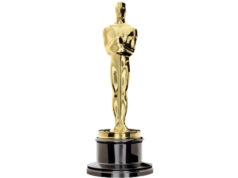BECAUSE our choices shape our lives and of those around us, it is important for those to be good. Cosmetics giant L’Oreal — which also controls brands Garnier, Maybelline, and Nyx, among many others — is committing to give consumers the chance to make good choices, outlining its motives and motions in a transparency summit held earlier this month.
The summit, held in Mar. 4, was held online.
“Health is everybody’s number one priority. Sustainability is more than ever, an imperative. Consumers want products that are good for them, and good for the planet,” said L’Oreal’s Deputy CEO Nicholas Hieronimus.
The group is able to sell six to seven billion products to 1.2 billion people worldwide, he said. “Not only are we the world’s beauty leader when it comes to marketing creativity, and brand equity; we are also the world leader in superior performance, safety, and formula innocuity.”
With such great power comes great responsibility. This can cover everything from nixing animal testing, to explaining formulations and ingredients in an effort to be transparent.
Barbara Lavernos, L’Oreal Chief Research, Innovation, and Technology Officer, outlined the group’s devotion to science. The group employs 4,000 people from 60 nationalities, in 50 disciplines, in 21 research centers around the globe, producing 500 patents every year.
One of the chief problems of the cosmetic industry has been its association with animal testing. Ms. Lavernos pointedout that the company started to curb animal testing begun during the 1970s. “Even then, we were convinced that testing on animals should be banned. To achieve this, the solution was to successfully reconstruct human skin,” she explained. Elisabeth Bouhadana, L’Oreal Paris Director for Scientific Communication, said that they have not tested on animals for 30 years.
Ms. Bouhadana spoke about the specific brand initiatives of L’Oreal: for example, devoting a website, Inside Our Products, that will aim to explain a product’s formulation and ingredients. Over at La Roche-Posay, they are developing QR codes that would lead a consumer to more information about the product; while the line of YSL cosmetics would include information on sustainable sourcing.
Of these, one of the most forward campaigns was from Garnier. Mathieu Richome, Garnier Sustainability and Scientific Communications Manager, said that they have listed the origins of their ingredients on their labels since 2017, while in 2020, they developed labeling to include a product’s environmental and social impacts.
“This transparency will also force us to continuously work to get better,” Mr. Hieronimus said. — JL Garcia



